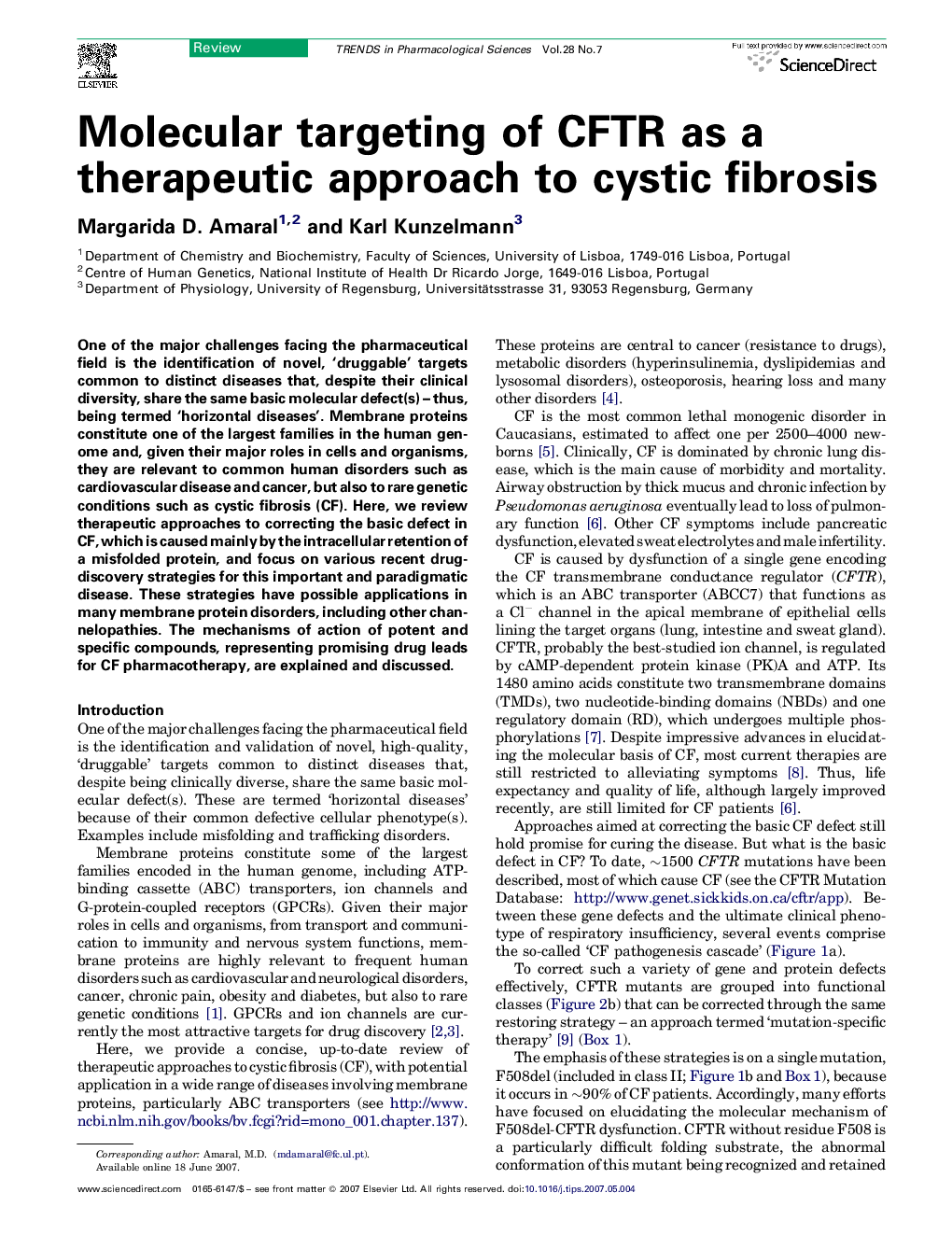| Article ID | Journal | Published Year | Pages | File Type |
|---|---|---|---|---|
| 2573631 | Trends in Pharmacological Sciences | 2007 | 8 Pages |
One of the major challenges facing the pharmaceutical field is the identification of novel, ‘druggable’ targets common to distinct diseases that, despite their clinical diversity, share the same basic molecular defect(s) – thus, being termed ‘horizontal diseases’. Membrane proteins constitute one of the largest families in the human genome and, given their major roles in cells and organisms, they are relevant to common human disorders such as cardiovascular disease and cancer, but also to rare genetic conditions such as cystic fibrosis (CF). Here, we review therapeutic approaches to correcting the basic defect in CF, which is caused mainly by the intracellular retention of a misfolded protein, and focus on various recent drug-discovery strategies for this important and paradigmatic disease. These strategies have possible applications in many membrane protein disorders, including other channelopathies. The mechanisms of action of potent and specific compounds, representing promising drug leads for CF pharmacotherapy, are explained and discussed.
